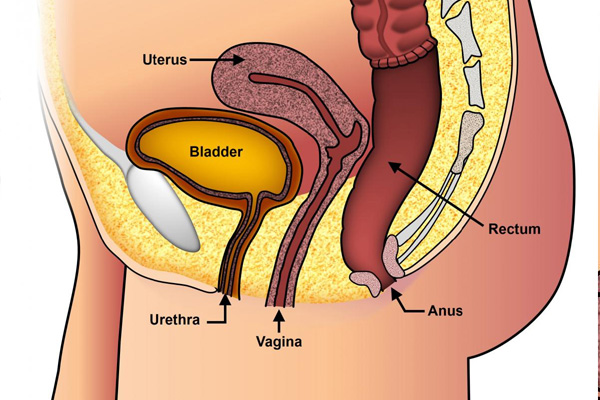Depending on the stage of cancer on which it is diagnosed, surgical care is a highly recommended option for potentially curative treatment or as a form of palliative care for the cancer patient. The surgery, colectomy, mainly involves surgical resection of the colon or part of it along with lymphadenectomy (removal of the lymph nodes supplied by the colon and associated structures). The use of adjuvant therapy such as chemotherapy increases the chance of the surgical resection cure.
There are various types of operations which the patient may be subjected to depending on the part of the colon where the malignancy is. They include: the Right/extended right hemicolectomy, Left hemicolectomy, Sigmoid/ or the upper rectum resections, the lower rectum resections, the low anterior resection/abdominoperineal resection (APER) and the anorectal resection. If the patient presents to the doctor late when cancer has already spread to other body organs (metastasis), resection of the tumor will be also be done on the affected organs at the time of the resection of the primary cancer.

Indications for surgery in colon cancer
Colectomy or hemicolectomy is done because:
- It controls the spread of the primary cancer to other organs such as the liver or lung. The patient’s lifespan is normally increased after the resection of the primary tumor because the metastases are very lethal and bring about more complications to the cancer.
- The surgical procedure takes care of the symptoms and signs that the patient experiences such as per rectal bleeding, difficulty in defecation, tenesmus, and constipation.
How is the operation done?
The type of the operation of the colon depends greatly upon the stage at which the colon cancer was detected. A less aggressive approach is used for stages I-II while later stages involve more aggressive surgeries and treatment options. The use of adjuvant treatment modalities such as radiotherapy or immunotherapy greatly increases the uptake of surgical care by the patient. The surgical treatment approaches are mainly of two types, laparoscopic- a minimally invasive procedure and open abdominal surgery. Laparoscopically, about 5 holes are made into the abdominal wall and the appropriate surgical instruments for this procedure are inserted into the abdominal cavity. The camera located on the laparoscope is used to visualize the surgical procedure and good visualization of the tissues. Colectomy is done to resect part of the colon in an early stage of the colon cancer or the whole of the colon advanced cancer. The surgeon must be careful to remove the lymph nodes and lymphatic channels at this point because they are channels through which cancer can spread to other viscera in the body. If the rectum is part or wholly involved by the colon cancer, resection of it is indicated. A colostomy bag is used based on the doctors’ assessment during or before the surgical procedure.
Risks
- This surgery falls under the medium-risk surgeries where the expected blood loss is expected to be less than 1000mls.
- The co-use of the chemotherapy agents might increase the overall risk because of the immunosuppressant effect.
- Bowel perforation and other secondary injuries to other abdominal organs such as the pancreas.
- There is a risk of infections especially if it is an open surgery.
Patient preparation
- The patient should fast for about 6-8 hours before the operation for the sake of a good outcome during the general anesthesia
- Informed consent should be taken by the doctor before the surgery. This should only be done after a detailed explanation of the condition by the doctor to the patient, in a way that the patient understands the risks and the benefits of the surgical procedure.
- The bowel preparation takes place to evacuate the fecal matter. The patient takes in laxatives to increase the movement of the intestines to evacuate all the fecal matter in preparation for surgery
- Prophylactic antibiotics should be given before the procedure to minimize the risk of infections.
- Blood work and other necessary radiological investigations should be obtained to give the surgeon a better impression of the extent of the disease.
- If the patient is taking any anticoagulant medication, they should disclose this to their doctor and plan how they are going to stop them or reduce the dosage as they could result in over bleeding during surgery.